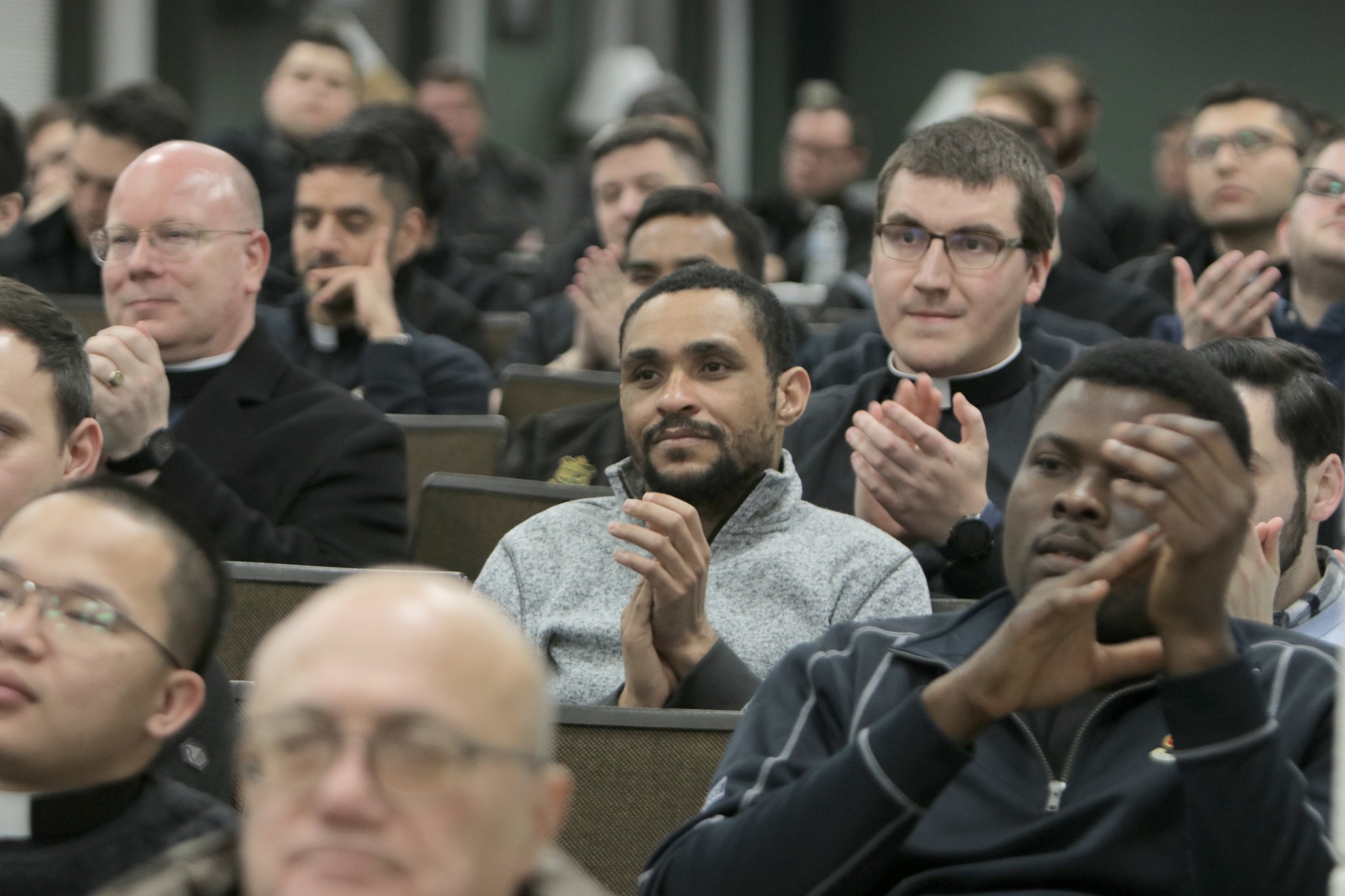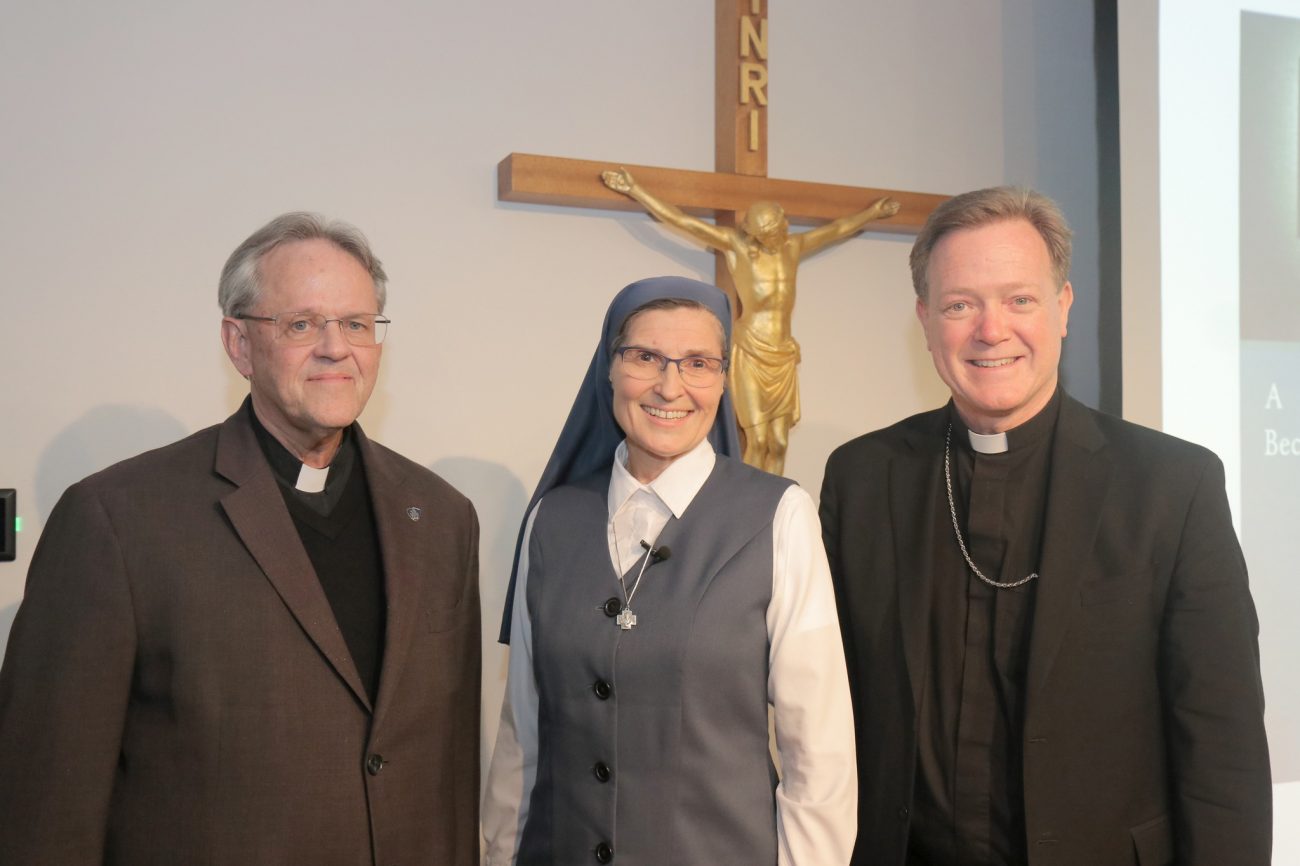“The Christian of tomorrow will be a mystic or nothing at all.”
Quoting Karl Rahner, a renowned Jesuit priest and scholar, Sr. Nancy Usselmann, FSP opened attentive ears and minds last Monday night to understanding her unique approach to pop culture and spirituality.
Sr. Nancy delivered the 2024 John Cardinal Foley lecture on Church and Social Communications at Saint Charles Borromeo Seminary in Wynnewood Jan 29. The Director of the Pauline Center for Media Studies in Los Angeles, Sr. Nancy introduced her theology of film and social media, as detailed in her book, A Sacred Look: Becoming Cultural Mystics: Theology of Popular Culture.
Recalling Pope Saint John Paul II’s recognition of the cultural impact of artists – those who “give voice in a way to the universal desire for redemption” – Sr. Nancy inserts this understanding into the idea of cultural mysticism, a recognition of God’s presence in all moments of human experience, even when those experiences are dark and unsettling.
An international speaker, writer, film, and TV reviewer among other roles, Sr. Nancy can be found at film festivals, conducting red carpet interviews and asking actors and directors questions about the deeper intention, meaning, and significance of their films.
“I don’t ask if they’re wearing Valentino,” she quipped.
For Sr. Nancy and the Daughters of St. Paul – “the media nuns” – exploring books, blogs, and movies is not limited to Christian-centric artforms. As most artforms are secular, Sr. Nancy opens wide the cultural door.
“We have to be there,” she explains, “where the people are.” That means not running away from the culture but delving into it and peeling back the layers to see the deeper meaning.

Attendees listen to Sr. Nancy’s lecture during the John Cardinal Foley lecture on Church and Social Communications Jan. 29. (Sarah Webb)
“Jesus shared meals with the tax collectors and prostitutes. He didn’t run away from the dark,” said Sr. Nancy. To many Christians, much of what comes out of Hollywood is increasingly dark. Yet, God is always present everywhere, and that includes the media.
“Our everyday experience is a media experience,” she explained.
On occasion, Sr. Nancy’s work raises eyebrows, such as her horror movie reviews. But, wearing her shield of faith, she unwraps a story in search of the human desire that is addressed and the questions that are raised. “It may not get it right, but it may start the conversation.” This opens the door to the cultural mystic.
Cultural mystics evangelize from within, pointing out the deeper meanings in the ordinary, listening to the cries of humanity, because the cries are there — in movies, blogs, and music. Blessed Pope Paul VI described evangelization as the church’s deepest identity and mission.
Sr. Nancy makes clear that the principle of media literacy is that each media consumer is looking at the story from a different point of view. Enter cultural mystics as witnesses of God’s almighty presence and love, at work in every human experience, reaching the people of today with the means of today.
When questioned about her take on culture, Sr. Nancy defined it as “the forming of a people together that share values,” and further pointed to what is a role reversal by way of a media culture, which dictates the values that become the moral code by which we live.
Calling on Catholics to become writers, screenwriters, and filmmakers, Sr. Nancy sees this as a way for cultural mystics to insert themselves into the secular conversation, as Catholics telling good stories in a Christian way. And when they do, they will find Sr. Nancy eagerly waiting for them on the red carpet.
The Cardinal Foley lecture is one of a series of events each year sponsored by the John Cardinal Foley Chair of Homiletics and Social Communications. The events bring focus on the life’s work of the late cardinal who was ordained for the Archdiocese of Philadelphia, taught at Saint Charles Seminary, was editor of The Catholic Standard and Times, and served as president of the Pontifical Council on Social Communications.
To view a recorded video of this year’s lecture, visit the lecture series page.
PREVIOUS: Undeterred by Snowstorm, Local Students ‘March for Life’ in D.C.
NEXT: Archbishop Pérez Announces Latest Clerical Changes for Parochial Vicars, Permanent Deacons



Share this story